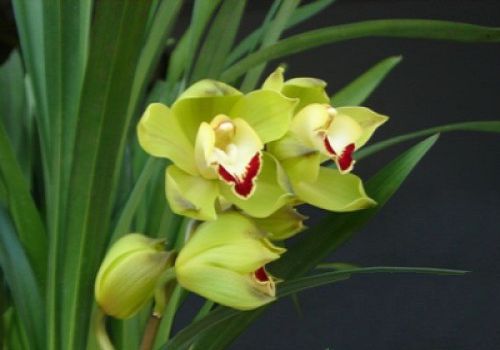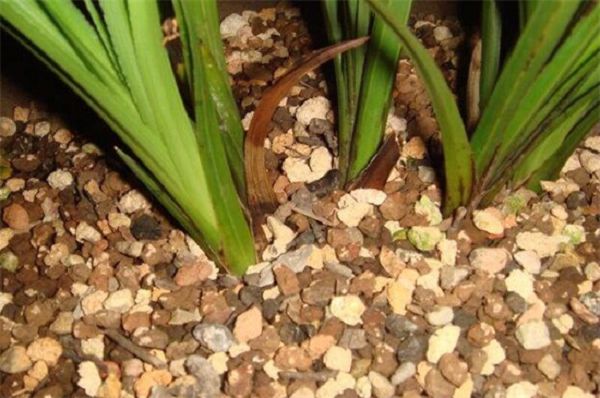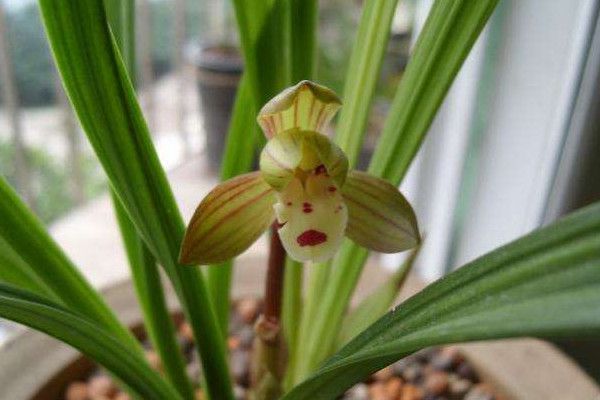How to raise orchids well? The basic knowledge of cultivating orchids

(1) in order to cultivate orchids well, we should first solve the problem of the site environment of orchids. Orchid planting can be divided into courtyard planting and large field planting. General family orchid can choose balcony or rooftop, you can also build a shed on the windowsill. Glass greenhouses can be built if conditions permit. But planting places, whether on the balcony, rooftop or windowsill to build a proper shading net, to have good ventilation conditions, to maintain appropriate humidity, is the basis of growing orchids. Planted in the balcony, to choose a north-to-south balcony, you can use fish foil or active shading net to block the wind and heat, such as the sky with star iron canopy of the best transformation to use imported transparent rubber tiles instead, in order to maintain the sun. Rooftop orchids can be supported by water pipes, 80% shading nets are used around and on the sky to block the sun and wind, and a movable shading net is added to the roof when the summer is too hot. Generally speaking, environmental transformation should be adapted to local conditions and should be constantly explored and improved through practice. Only in this way can we ensure the growth of orchids.
(2) choose good plant materials and pots for orchid cultivation, which are the basic conditions for planting orchids. Orchid pot is the living room of orchids, which has a great influence on the growth of orchids. In the past, traditional orchids used large tile pots, but now most of the high-grade orchids use small trumpet pots. There are pottery pots and plastic pots, each with its own advantages and disadvantages. What kind of pot to use depends on each person's habits and varieties. However, it is best to use the same orchid basin with different sizes in an orchid shed for unified management in the future. Plant material: the orchid plant material (base material) used to use pond mud in the past, but now it uses pond cornerstone, pumice stone, wind fossil, absorbent stone, pottery and other plant materials. Field species of orchid mostly use sawdust, grain husk, dregs, cinders, sea sand, peanut shells and other soft plants, with foam at the bottom and so on. Mixed use is more common. The use of these plants has its own advantages and disadvantages. What kind of plant material is better to use depends on the habits of each person, the varieties of cultivation and the pots used (the pots and plants cooperate with each other).
(3) if you want to cultivate orchids well, you must constantly sum up experience in practice. Experience is the best teacher. In order to improve the artistic level of orchid cultivation, we must personally participate in the practice of orchid cultivation. At the beginning, we should read more books, visit more, ask more questions, and constantly explore and sum up experiences and lessons in practice in order to continuously improve the technical level of planting orchids.
(4) to master the management of watering, fertilization and the prevention and control of diseases and insect pests is an important key to the cultivation of orchids. Fertilization should generally be applied in sunny days, and the principles of fertilization should be applied thinly, frequently and not during hibernation.
Related
- Is the orchid suitable for indoor use? Is it good for the body?
- How to prevent the empty root of orchids?
- What to do after the crab claw orchid is withered?
- Why are the leaves of orchids always yellow? Fertilizing and watering.
- Can the root of the gentleman orchid be saved if it is rotten?
- Diagnosis and treatment of cotton-blowing beetle insects in Cymbidium
- There is a way for a gentleman's orchid to rot.
- What is the most suitable temperature and humidity for the orchid?
- How to raise a gentleman's orchid? Cultivation techniques of Cymbidium
- How to prepare the nutritive soil for the cultivation of Cymbidium



